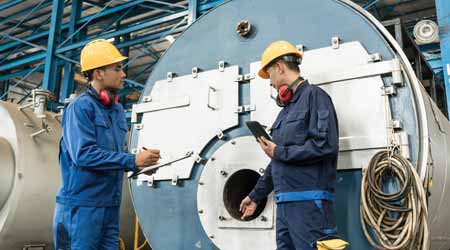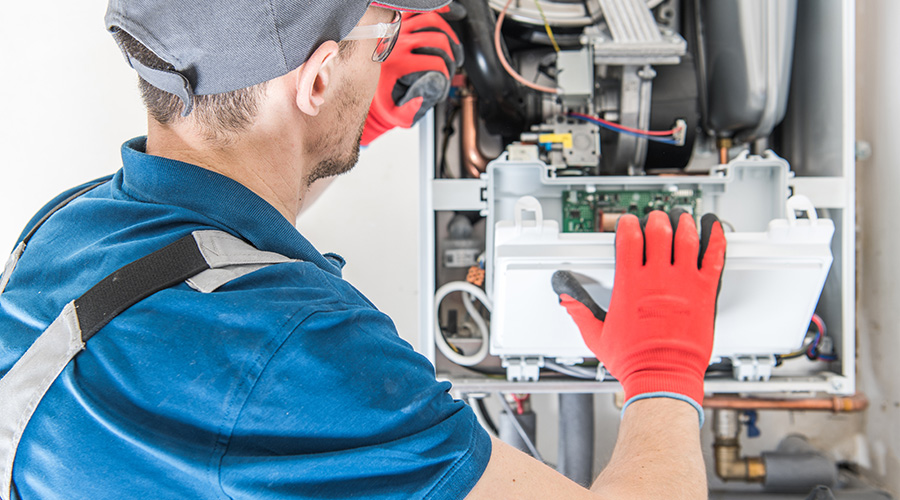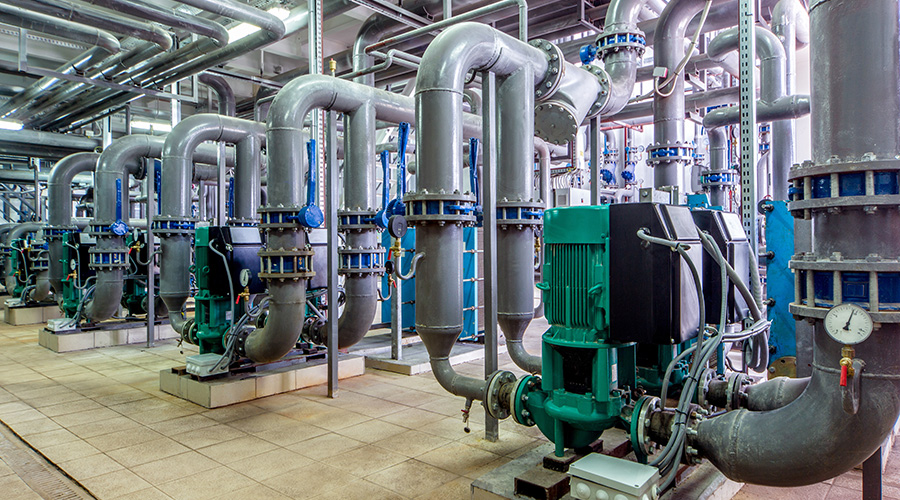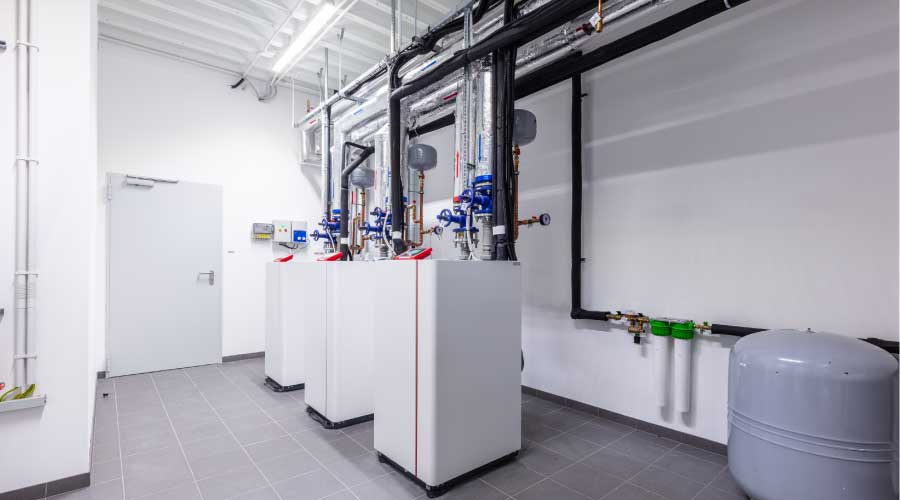 When specifying new boiler technology, managers should not overlook the importance of technician training to ensure the investment performs and delivers as intended.
When specifying new boiler technology, managers should not overlook the importance of technician training to ensure the investment performs and delivers as intended.Boilers: Condensing Considerations
When specifying new boiler technology, managers should not overlook the importance of technician training to ensure the investment performs and delivers as intended
In conventional boilers, hot gasses produced by combustion pass through the boiler’s heat exchanger and exhaust to the atmosphere. One byproducts of combustion is water vapor, which exhausts from the boiler with the other combustion gases.
Condensing boilers extract additional heat from this water vapor by allowing it to condense to liquid form. Recovering this latent heat of vaporization energy that otherwise would be lost improves the operating efficiency of the condensing boiler to 90 percent or more, which is a full 10-12 percent increase over the efficiency of conventional boilers.
The condensate produced by condensing boilers is slightly acidic, so materials that come in contact with the flue gases must be acid-resistant. In high-temperature applications, aluminum and stainless steel are the most common materials used. In low-temperature applications, plastics such as PVC or polypropylene are used. Both systems require the installation of a heat-exchanger condensate drainage system.
Most modular boilers now are condensing boilers. By using condensing boilers in a modular boiler system, managers can expect an overall increase in operating efficiency of at least 20 percent. While condensing boilers and their installation requirements drive up costs compared to conventional boilers, organizations can recover those additional costs in one to two years in most applications.
Taking control
Improved operating controls also offer major improvements in boiler performance. Automated staging of multiple boilers, combined with modulating boilers from a central station, ensures that capacity matches the heating load without the need for operators to intervene.
Operators also can use hot-water temperature reset to reduce energy use. By basing the supply-water temperature provided by the boiler system on either the outside temperature or the return water temperature, operators can reduce overall system losses and the frequency of overheating internal spaces.
Small, modular boilers also feature more precise air-fuel ratio controls. To maintain energy efficiency and proper operation of the boiler, it is important that operators maintain the proper air-fuel ratio over the boiler’s full operating range. If the air-fuel ratio is too high, the system loses energy through exhaust gases. If the ratio is too low, the combustion produces soot on heat-transfer surfaces that reduces operating efficiency.
Large conventional boilers typically use mechanical linkages to regulate the air-fuel ratio. While they might produce efficient operation under full or near full-load operating conditions, they are not as efficient under part-load operation.
Control systems on today’s modular boilers have replaced mechanical linkages with sensor-driven servos that allow more precise control over the entire operating range of the boiler.
Managers should not overlook the importance of training when investing in new boiler technology. Modular boilers, condensing boilers, and new boiler control systems will change the operation and maintenance of a boiler system. For the investment to have its intended impact, those who operate and maintain the boilers must have the necessary training to do so properly.
James Piper, P.E., is a national facilities consultant with more than 30 years of experience with facilities maintenance, engineering and management issues.
Related Topics:













